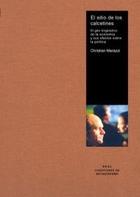
Our time has known a profound transformation of production processes. While the assembly line excluded all forms of language as a directly productive factor, production without communication is not verified today: on the contrary, work and information necessarily overlap to ensure maximum performance in the shortest possible time. And this transformation has imposed a new type of worker, no longer specialized, but versatile, able to adapt to new demands. This book analyzes this postfordist model, from its Japanese origins to innovations related to political and administrative spheres. Something more than an essay on economic criticism, in which problems related to our social life, political theory, democratic institutions, interpersonal relations or the role played by language in liberal democracy are addressed.






